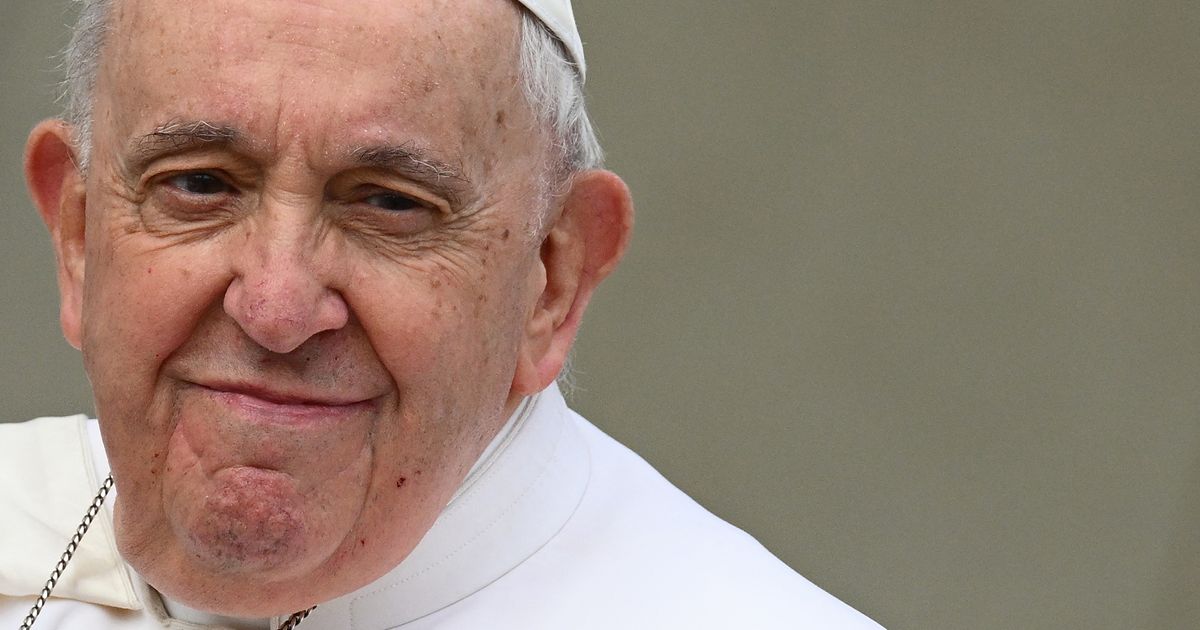Power and Prejudice: How Authoritarian Regimes Weaponize Religious Oppression
Religion
2025-03-31 02:15:01Content

In a stark revelation, the U.S. Commission on International Religious Freedom has pinpointed authoritarian governance as the primary catalyst behind the escalating global crisis of religious persecution. The commission's 2025 annual report paints a troubling picture of how oppressive regimes are systematically undermining religious freedoms across diverse regions of the world.
The report highlights a disturbing trend where authoritarian governments are increasingly using their power to suppress religious diversity, marginalize minority faith communities, and control religious expression. By wielding political and legal mechanisms, these regimes are creating environments of intense religious intolerance and systematic discrimination.
Experts from the commission emphasize that the "common denominator" in worsening religious persecution is not a specific ideology or region, but the fundamental nature of authoritarian rule itself. These governments view religious freedom as a threat to their absolute control, leading to widespread violations of fundamental human rights.
The findings underscore the urgent need for international intervention and diplomatic pressure to protect religious minorities and promote genuine religious freedom worldwide. As authoritarian tendencies continue to grow, the report serves as a critical warning about the expanding threat to religious liberty and human rights.
Global Religious Freedom Under Siege: The Rise of Authoritarian Oppression Unveiled
In an era of increasing global tensions, the delicate fabric of religious liberty is being systematically unraveled by powerful authoritarian regimes. The intricate landscape of international religious freedom has become a critical battleground where fundamental human rights are challenged, tested, and often brutally suppressed.Uncovering the Dark Shadows of Religious Persecution Worldwide
The Authoritarian Mechanism of Religious Suppression
The complex machinery of authoritarian governance has emerged as a primary catalyst for widespread religious persecution. These regimes strategically deploy multifaceted approaches to marginalize and control religious communities, transforming spiritual expression into a dangerous act of resistance. By implementing sophisticated surveillance systems, legal frameworks, and social control mechanisms, authoritarian governments systematically erode the fundamental human right of religious freedom. Governments employing these tactics create intricate networks of intimidation, where religious minorities are strategically targeted through economic disenfranchisement, social stigmatization, and institutional discrimination. The psychological warfare waged against religious communities extends beyond physical persecution, creating environments of constant fear and uncertainty.Global Patterns of Religious Oppression
Across diverse geopolitical landscapes, authoritarian regimes have developed nuanced strategies for religious suppression. These approaches are not monolithic but instead reflect complex cultural, political, and historical contexts unique to each region. From state-sponsored ideological campaigns to subtle bureaucratic restrictions, the methods of religious persecution demonstrate remarkable adaptability and sophistication. The systematic marginalization of religious groups serves multiple strategic objectives for authoritarian governments. By fragmenting potential opposition, controlling narrative spaces, and maintaining ideological homogeneity, these regimes effectively neutralize potential challenges to their political dominance. Religious communities become pawns in a broader geopolitical chess game of power and control.International Response and Diplomatic Challenges
The international community faces unprecedented challenges in addressing religious persecution. Traditional diplomatic mechanisms appear increasingly inadequate in confronting the sophisticated suppression techniques employed by authoritarian regimes. Multilateral organizations and human rights institutions struggle to develop effective interventions that can meaningfully protect religious freedoms without triggering diplomatic backlash. Diplomatic negotiations become intricate balancing acts, requiring nuanced understanding of cultural sensitivities, geopolitical dynamics, and the complex interplay between religious expression and state sovereignty. The most successful approaches blend strategic pressure, economic incentives, and targeted diplomatic engagement.Technological Dimensions of Religious Persecution
Emerging technologies have transformed the landscape of religious persecution, providing authoritarian regimes with unprecedented tools of surveillance and control. Advanced digital monitoring systems, artificial intelligence, and sophisticated data analytics enable governments to track, predict, and preemptively suppress religious activities with alarming precision. Social media platforms and digital communication channels have become critical battlegrounds where religious communities navigate increasingly restrictive digital environments. The weaponization of technology represents a new frontier in the ongoing struggle for religious freedom, challenging traditional human rights protection mechanisms.Psychological and Social Consequences
The impact of sustained religious persecution extends far beyond immediate physical threats. Communities subjected to prolonged systemic oppression experience profound psychological trauma, social fragmentation, and cultural erosion. The cumulative effect creates generational wounds that persist long after direct persecution subsides. Religious minorities develop complex survival strategies, ranging from strategic invisibility to subtle forms of resistance. These adaptive mechanisms reveal remarkable human resilience in the face of systematic oppression, highlighting the profound human desire for spiritual expression and community integrity.RELATED NEWS
Religion

Tufts Student's Detention Sparks Civil Rights Outcry: CAIR Demands Urgent Medical and Religious Support
2025-04-14 15:06:51
Religion

Soul Sanctuary: Local Church Unveils Holistic Self-Care Toolkit for Community Wellness
2025-04-20 18:00:00






